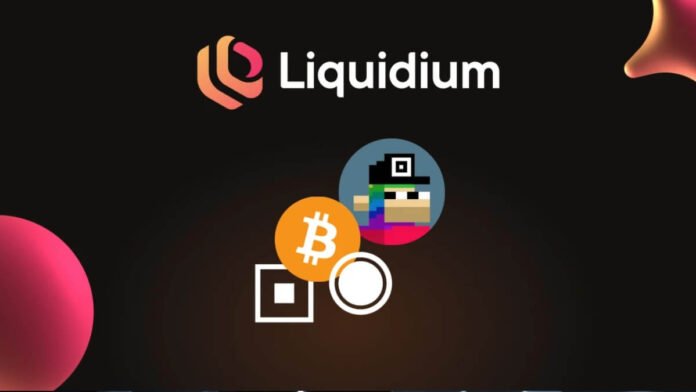- Liquidium has launched the first-ever native cross-chain lending platform — without bridges, wrapped tokens, or any custodial risks.
- Users can now deposit native BTC and borrow assets like USDC on Ethereum or SOL on Solana.
- This unlocks a multi-billion dollar opportunity and solves crypto’s biggest UX problem: seamless, trustless interoperability across major chains.
Liquidium—Bitcoin’s largest peer-to-peer lending protocol— today unveiled Liquidium Cross-Chain Loans. It is a native, non-custodial cross-chain lending product that enables users to borrow assets like USDC on Solana or USDT on Ethereum using native Bitcoin as collateral—without bridges, wrapped tokens, or centralized custodians.
The launch made at the Bitcoin 2025 Conference today addresses one of the ecosystem’s most enduring limitations: trustless movement of value between chains. Until now, users seeking to borrow stablecoins against BTC needed to rely on wrapped tokens like WBTC or custodial bridges—both of which introduce security risks and usability friction. Liquidium’s new protocol eliminates these barriers entirely.
“Bitcoin was built for self-sovereignty, not surrendering keys to centralized bridges,” said Robin Obermaier, CEO and Co-founder of Liquidium. “With this release, users don’t need to think about cross-chain complexity. You deposit BTC and borrow what you need—natively—on Ethereum or Solana.”
Powered by the Internet Computer’s (ICP) Chain Fusion technology, the protocol achieves seamless interoperability between Bitcoin, Ethereum, and Solana. ICP’s Chain Fusion facilitates secure, atomic execution of cross-chain transactions without intermediary steps. It allows users to interact across blockchains using native assets and familiar wallets like Ledger, MetaMask, or Phantom.
Real Yield, Real Collateral—All Natively
The protocol already supports over 4,200 BTC in cumulative loan volume (~$430 million) and has facilitated nearly 100,000 loans directly on the Bitcoin Layer 1. More than 80 BTC has been paid out to lenders in interest, largely driven by demand for Ordinals, Runes, and BRC-20-based loans.
Now, with cross-chain lending, users can:
- Deposit native BTC from Bitcoin wallets (e.g., Ledger, Xverse)
- Borrow USDC or SOL directly to their Ethereum or Solana wallets (e.g., MetaMask, Phantom)
- Supply ETH, SOL, and stablecoins on respective chains to earn yield
Importantly, the loans are natively settled—meaning no wrapping or manual bridging is involved. This is a first in the industry.
The company’s original BTC-native lending app has been rebranded LiquidiumWTF to cater specifically to Bitcoin-native assets like Ordinals and BRC-20s. The new Liquidium Cross-Chain product will address broader DeFi use cases with a streamlined interface for multi-chain users.
Tackling a Multi-Billion Dollar Opportunity
More than $4.3 billion in wrapped BTC sits idle in Ethereum-based DeFi protocols today, according to Aave’s Reserve Overview (May 2025). Liquidium aims to unlock this trapped capital by offering a native alternative—one that taps directly into Bitcoin’s security and liquidity.
For institutional and individual lenders, the ability to earn real BTC yield—without the counterparty risk of wrapping or centralized custody—is a major differentiator. The move also comes at a time when single-chain money markets like Aave, Morpho, MarginFi, and Kamino dominate TVLs across isolated ecosystems. Liquidium’s multi-chain model challenges that fragmentation directly.
“Liquidium’s implementation is exactly what we envisioned with Chain Fusion,” said Lomesh Dutta, VP of Growth at the DFINITY Foundation, which developed the Chain Fusion architecture. “It’s a defining moment for trust-minimized cross-chain DeFi.”
Liquidium is Backed by Bitcoin’s Builders
Liquidium, founded in 2022, has raised $4 million to date in pre-seed and seed funding from prominent backers, including Stacks Foundation, CMS Holdings, Portal Ventures, Newman Capital, Bitcoin Startup Lab, and UTXO Management.
The protocol is expected to launch in closed beta in Q3 2025, with a public release planned for later this year. Users can now join the waitlist at liquidium.fi.
Read Also: Taurus and Parfin Integrate Platforms to Fuel Institutional Crypto Adoption




